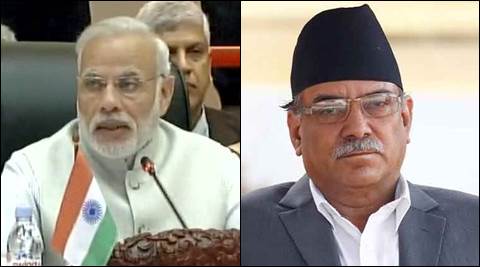
Lost in the midst of the India-Pakistan crisis unfolding along the Line of Control, India and Nepal have begun a serious effort to rebuild their battered relationship. Last week, Prime Minister Pushpa Kamal Dahal, better known as Prachanda, met with Prime Minister Narendra Modi on his first overseas visit after taking office. That Prime Minister Dahal is keen on not repeating the mistakes of his last tenure, which turned the relationship with India increasingly bitter, is clear. On that occasion, he chose to head to Beijing first, not New Delhi. Now, Prime Minister Narendra Modi has returned the compliment, calling his counterpart a “catalytic force of peace”, who would “successfully implement the Constitution through inclusive dialogue accomodating the aspirations of all sections of your diverse society”. Prime Minister Dahal has also demonstrated a willingness to accomodate the concerns of Nepal’s plains peoples, linked to India by ethnicity and history. In New Delhi, he told a community event that “without taking Janatis, Tharus and Madhesis into confidence, the right atmospherics cannot be created for implementation of the constitution”.
New Delhi’s actions have demonstrated a willingness to put the past behind it. The two sides have renegotiated the $1 billion line of credit given to Nepal after the 2014 earthquake, allowing it to reapportion unutilised funds, and given a new, $750 million line of credit for reconstruction. The money will pay for new roads, power transmission lines, and a technical educational institution — all of which will help Prime Minister Dahal build legitimacy in the Terai region. New Delhi has also shown a readiness to accomodate Nepal’s growing relationship with economic superpower China, choosing not to pressure for agreements signed under former Prime Minister K.P. Oli to be rolled back.
Does this mean that all is now well? The India-Nepal story isn’t, sadly, headed towards a happy ending just yet. For one, the country remains politically volatile. Prime Minister Dahal is in office because of a power-sharing deal that will see him hand over power to the Nepali Congress leader Sher Bahadur Deuba in nine months’ time. Then, complex negotiations to heal the ethnic wounds which opened up in the course of adopting Nepal’s new Constitution will have to be addressed. Plains communities harbour a deep sense of resentment, but leaders must balance that against the hill communities’ concerns. India must be prepared to be a patient friend to all of Nepal’s peoples, refraining from the kinds of pressure tactics that have caused so much bitterness in the past.